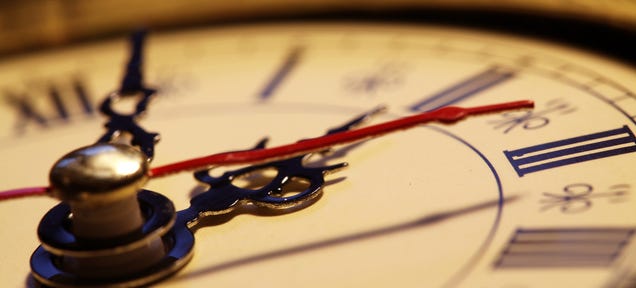
Because
Earth's rotation is slowing ever so slightly, we occasionally need to
add an extra second to re-sync our super-precise atomic clocks to our
planet's rotation. But you know who's not on board with that? Those damn computers, whose operating systems just can't handle it. The last time we added a leap second in 2012, it wreaked havoc across the Internet.
Leap
seconds are governed by the Paris-based International Earth Rotation
Service, which this week announced its plan to make June 30, 2015 one
second longer. This will be the 26th such leap second added since 1972.
In those
intervening decades, though, we've become ever more dependent on
computers and GPS systems that need to keep exact time—making the task
ever more fraught. In 2012, the act of adding a simple second took down
Mozilla, Reddit, Foursquare, Yelp, LinkedIn, and StumbleUpon, according to the Telegraph. And yes, Gizmodo was not spared either.
It mostly
has to do with NTP, or the Network Time Protocol computers use to sync
with atomic clocks. If a computer sees the same second twice in a row,
it logically thinks something went very wrong. There are fixes to this,
but they've obviously not been implemented across the board.
Apparently, the Telegraph reports, there's been some controversy over whether to keep adding leap seconds. U.S. delegates have argued that "precisely
timed money transactions could go astray or vehicles could be sent tens
of metres out of position if they are a second out in their measurement
of time." It's amazing to think that our world is so interconnected but
fragile that a single second could send hiccups rippling through the
system.
But,
perhaps, more frighteningly, if we don't keep adding leap seconds, the
primordial link between our notion of a day and the rotation of the
Earth could be forever disrupted.
"Experts also fear that once this link is broken it could never be restored because although the Earth's timekeeping systems are built to accommodate the occasional leap second, adding a leap minute or hour to global time would be virtually impossible."
After all,
what is a day? Is it 24 hours exactly? Is it one complete revolution of
the Earth? Armed with our super-precise modern instruments, we find
ourselves asking basic questions about our world.
No comments:
Post a Comment